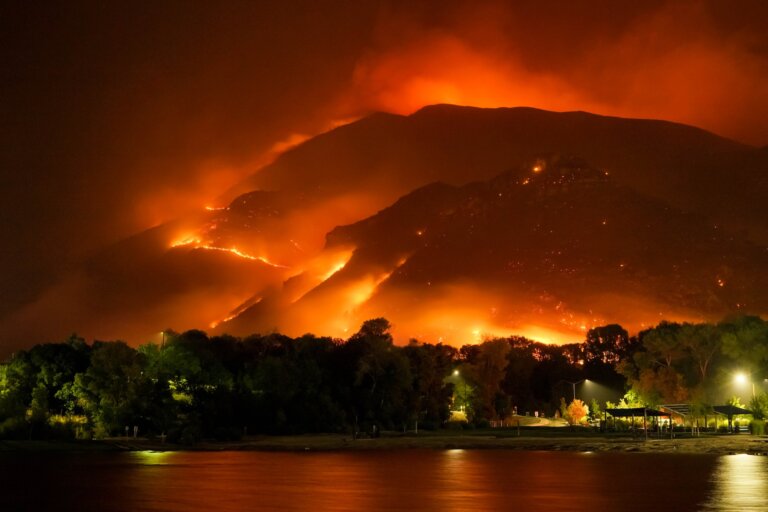- About
- Topics
- Picks
- Audio
- Story
- In-Depth
- Opinion
- News
- Donate
-
Signup for our newsletterOur Editors' Best Picks.Send
Read, Debate: Engage.
| topic: | Climate Change |
|---|---|
| tags: | #climate change, #colonialism, #energy, #reparations |
| located: | USA, United Kingdom |
| by: | Ama Lorenz |
In the face of the escalating climate crisis, the concept of reparations for global climate justice has gained significant traction in recent years. The idea of holding responsible parties accountable for the historical and ongoing contributions to climate change has become an integral part of the international discourse surrounding environmental justice.

Image: Mike Newbry.
In a recent paper published in Nature Sustainability, Andrew L. Fanning and Jason Hickel provide a quantitative assessment of the potential compensation owed by over-emitting countries to the global community for the exploitation of the Earth's atmospheric commons.
The findings of the scientists are unequivocal: the majority of global South countries (GS) are operating well within their fair-share limits, while the global North (GN) collectively has exceeded its fair-share by a staggering 2.5 times. Furthermore, GN countries have surpassed not only their fair-share of the safe planetary boundary but also the allocated budgets for limiting global warming to 1.5 degrees Celsius and 2 degrees Celsius.
The consequences affect the global South hardest. Based on the calculations of Fanning and Hickel, over-emitting countries would be liable to pay a whopping USD 192 trillion to the rest of the world by 2050 as compensation. Among these countries, the United States, United Kingdom and European Union bear the greatest responsibility, with the highest amounts owed.
The study primarily examines the compensation owed for atmospheric appropriation, yet its underlying principles can be applied to explore wider aspects such as the expenses associated with transition, adaptation and damages.
Expanding on the concept of reparations, it becomes crucial to delve into its potential advantages, the challenges it poses and the broader implications it carries for fostering a sustainable future.
The historical emissions of greenhouse gases, primarily originating from industrialised nations, have had an outsised impact on global warming. This has resulted in an uneven distribution of the adverse effects, with countries in the Global South, particularly those in vulnerable regions, bearing the greatest burden despite contributing significantly less to the crisis.
The need for reparations arises from the acknowledgment that climate change amplifies preexisting inequalities and perpetuates injustices from the past. By recognising historical wrongs and advocating for sustainable solutions, reparations provide a beacon of hope for a future that is both fairer and more resilient.
Reparations for global climate justice seek to redress historical injustices by holding accountable those who have historically been responsible for excessive greenhouse gas emissions. This approach acknowledges that the climate crisis is not solely a modern-day problem, but rather a result of centuries of exploitation and unsustainable practices.
Reparations seek accountability for the historical exploitation that fueled climate change. By acknowledging this historical context, reparations aim to rectify the imbalances created by a legacy of environmental degradation.
Implementing reparations is complex, however, with challenges including determining liability, calculating compensation and ensuring the transparent allocation of funds. Striking a balance between historical accountability and future-focused solutions requires meticulous navigation.
Still, reparations hold transformative potential, bridging historical injustices and sustainable solutions. Yet, they must be complemented by emission reduction efforts, sustainable practices and robust international climate agreements to address the systemic causes of climate change.
Empowering the vulnerable: Reparations can fortify communities against climate impacts through financial resources, technology transfer and adaptation measures. We must enable those most affected to build resilience and protect their livelihoods.
Paving the way for sustainable development: By channeling resources into renewable energy and low-carbon initiatives, reparations can foster economic growth while reducing emissions. Green jobs and sustainable practices become catalysts for progress.
Uniting nations: Reparations inspire cooperation and solidarity, urging nations to work together in combating climate change. By accepting shared responsibility, we can forge a collective path towards climate justice.
Reparations offer a vital framework for healing the wounds of climate injustice and fostering a more equitable and sustainable future. By acknowledging past wrongs and supporting vulnerable communities, the way can be paved towards a future that prioritizes justice, resilience and the well-being of all.
It is through collective action that we can rewrite the narrative togehter and ensure a harmonious coexistence with our planet.
Jason Hickel, Professor at ICTA-UAB and Visiting Senior Fellow at London School of Economics and Political Science, London, UK.
Andrew L. Fanning, Ecological economist. Research and Data Analysis, Doughnut Economics Action Lab, Oxford, UK.
Compensation for atmospheric appropriation (Nature.com, 2003). You can download the full country-level dataset used to render the charts above here. You can download the published article’s Supplementary Information spreadsheet here. The source data and custom R code used to generate the analysis are archived on Zenodo.
Ama Lorenz is editor-in-chief and co-founder at FairPlanet.
